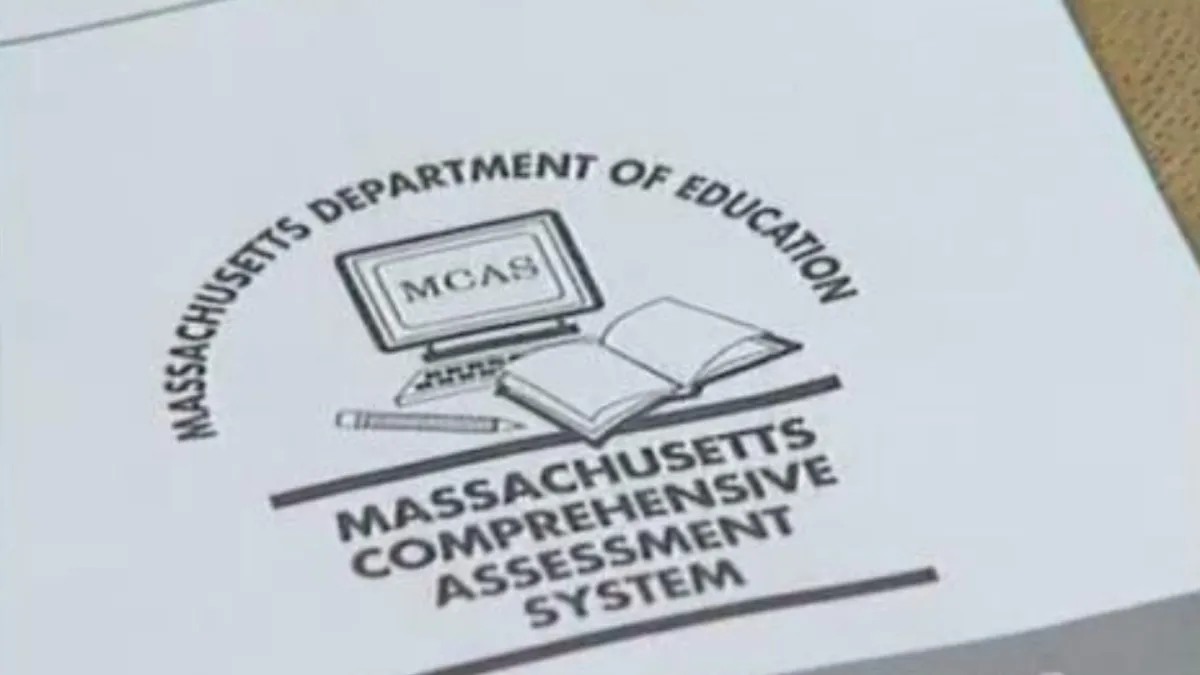When you first enter high school, there are many different things you have to worry about. From academics, to relationships, to your personal health, the first year of high school is filled with long-lasting memories, both good and bad.
One of the biggest things you will need to worry about, however, is something that is not exclusive to freshman year, but nearly each year of high school: MCAS.
From the very start of high school, you are told that in order to be able to graduate four years from now, you need to pass all three MCAS tests: Biology, English, and Math. The biology MCAS is taken during freshman year, while English and Math are both taken during sophomore year. For many students, MCAS is nothing new to them. It is typically taken in middle school, and in elementary school.
The difference, however, that makes taking the MCAS more stressful than usual, is the fact that if you do not hit the score requirement for any of those three MCAS tests, then you may not be able to graduate.
Because of this, the MCAS can affect students in negative ways. In my personal experience, a very close friend of mine was riddled with anxiety because of it. This experience made me wonder if other students felt this way. Currently, as of writing this, I am in my sophomore year of high school, which means I will have to take both the English and math MCAS. Since then, I’ve learned that it’s not only students who are impacted by the MCAS, but teachers as well. To learn more about this, I contacted both Ms. Bishop and Ms. King, two sophomore teachers that teach English and Math respectively.

Both teachers agree that preparing their students for the test stresses them out. “As a Sophomore English teacher, a majority of the year revolves around preparing students to take this exam,” Ms. Bishop says. “Since my students come from all over the world and have varying degrees of background knowledge and skills, making sure everyone’s educational needs are met can be a challenge. The test varies widely each year, too, and I have no idea what will actually appear on the final exam.”
Ms King says that it gets in the way of her wanting to go into more detail on certain units, “Geometry is supposed to take a whole academic year to teach. However, Geometry is only 35% of the Math MCAS” She says that 35% of it is Algebra I, 15% is Stats/Probability, and 15% is Number Sense. “Therefore, I have the pressure to teach all of Geometry in 6 months compared to 9 months in order to review a whole year’s worth of Algebra I and create a unit on stats/probability which is not a Geometry standard.”
Ms. Bishop and Ms. King also say that the MCAS is unfair and does not do much to help. “Even students with Individualized Education Plans (IEPs), only receive a handful of accommodations, and students that do not speak English as a first language are required to take the exam with only a word-to-word translation dictionary for support,” says Ms. Bishop. For context, an IEP is a plan that helps ensure students with disabilities get the accommodations and support they need to succeed in school. Ms. King said that while the MCAS can help test a student’s overall knowledge of content and make sure all schools across the state are teaching their students properly, it generally does not help teachers nor students.
Farah Waled is a sophomore who used to live in Maine and attend a semi-private high school. “Honestly I just moved to mass, and where I’m from we don’t do anything like the MCAS and I still passed top of my classes,” Farah Waled 26’ says. “So no, I do not think that the MCAS is useful. I think it’s quite the opposite actually and causes more stress.” The MCAS, like for many others, have caused her a surprising amount of concern and distress. “It’s actually so much more stressful than I anticipated.” Waled said. “At first I thought, ‘oh well like it’s just a normal test it’ll be easy’. But the closer it got the more stressed out it got me.”

Waled also believes that, because of the stress, learning the material for the test is harder: “I think my teachers are great, but I just think that some students [need] more time than others. I think that they are teaching us, but we’re not understanding because of how stressed we are.”
Camilly De Andrade Porfirio, 26’, Said that while the test itself is stress-inducing and not helpful, the prep for it is. “For example, in my English class we have been writing more essays and learning more about essay structure to help us prepare. I think that is helpful, not the test. I’m not a fan of standardized testing.”
De Andrade Porfirio, however, does think that having the MCAS as a graduation requirement is beneficial. “While it might sound stupid to students, the schools need something to show that a student is prepared to get out of school and has the essential skills [to succeed].”
As the English MCAS draws near, there is more and more pressure put on the students and teachers to wrap up lessons and studying before the big day comes. Through all of the stress and fear many sophomores are facing at this time, it’s important to remember not to let it overpower you.
“You have been preparing for this test all year in my class and even if you do not notice your capabilities, I do and I believe in you that you will do great!” Ms. King says. “Just take a deep breath, try your best, and remember you are much more than a grade on a test!”
“Your worth isn’t tied to your test scores; passing scores or not.” Ms. Bishop reassures. “Take your time, do your best, and know that your teachers and faculty are rooting for you!”






